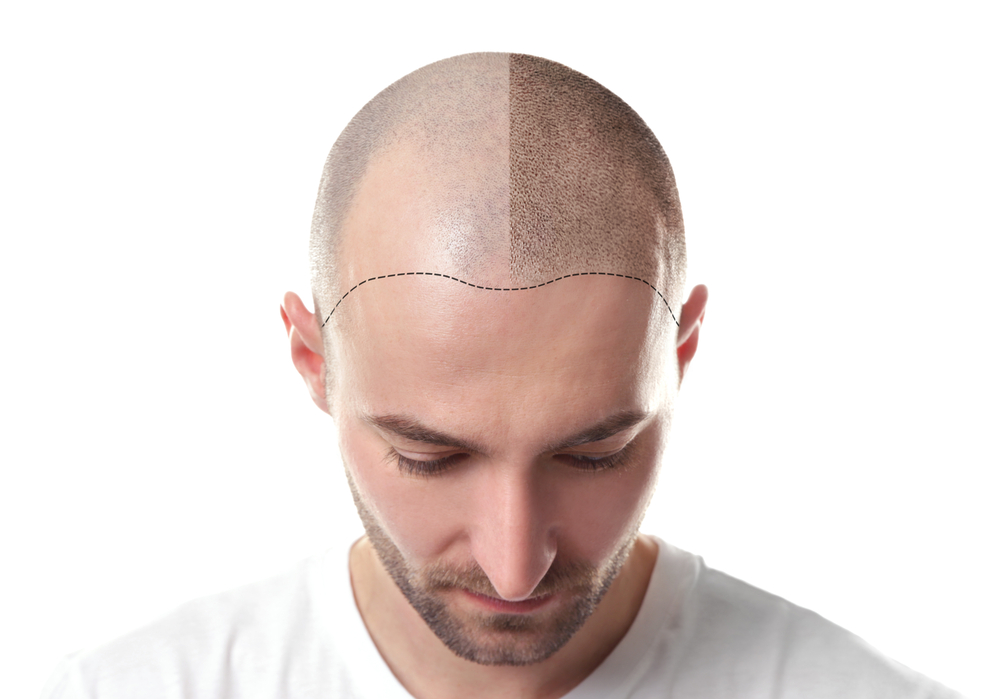If you are struggling with hair loss, you may not know that it can be caused by some dermatological conditions. As a hair loss dermatologist in Philadelphia, the team at Embrace Dermatology + Aesthetics can help. Keep reading to learn more about hair loss and its potential connection to underlying dermatological conditions.
Alopecia Areata
Alopecia Areata is an autoimmune disorder that causes hair loss. It’s a common condition that affects about 7 million people in the U.S. Nearly 25 percent of people with this condition are children. Alopecia areata causes patches of hair loss. It can affect hair anywhere on your body, but it most commonly affects the scalp.
There are different classifications of the condition, depending on how much hair you’ve lost. Alopecia areata totalis means you’ve lost all the hair on your head. Alopecia universalis means that you’ve lost all the hair on your scalp and body. Alopecia areata can also affect your nails, causing dents or a change in texture.
Lichen Planopilaris
Lichen Planopilaris is another dermatologic condition that can cause inflammation of the scalp and consequently, hair loss. It’s most common in women between the ages of 40 and 60 years old. It’s uncommon, accounting for only 1% of alopecia hair loss. However, along with central centrifugal cicatricial alopecia (CCCA), it is the most common cause of hair loss due to scarring.
Classic lichen planopilaris causes bald patches on your scalp. Frontal fibrosing alopecia causes bald patches and scarring at your hairline. Some people also lose hair in their eyelashes and eyebrows.
Seborrheic dermatitis
Seborrheic dermatitis typically affects the scalp. It damages the hair follicles and prevents hair growth. Seborrhea is a chronic inflammatory condition that causes oily and scaly skin because of overactive sebaceous glands.
Seborrheic dermatitis causes hair loss because the increased sebum production can irritate and inflame the scalp. This causes intense itching. When you scratch, it can cause damage to the hair follicles, obstructing your natural hair growth and causing your hair to fall out. Seborrheic dermatitis can be caused by Malassezia, a type of naturally occurring yeast. Unfortunately, this can cause inflammation and more damage to the hair follicles if it isn’t treated.
Seborrheic dermatitis can cause a range of symptoms. It’s a common cause of “cradle cap” in babies and can cause scaly skin. It can cause flaking, greasy patches on the head, dandruff, and itchy scalp. You may also develop a rash or redness on the scalp. Other symptoms include inflammation, thinning hair, and hair loss.
Treatment for Hair Loss
If you have a dermatologic condition that is causing your hair loss, it’s important to get it treated early. The condition may get progressively worse without treatment.
Treatment begins with identifying the cause of your hair loss. Treatment will then focus on treating the condition. You may need creams, special shampoos, injections or oral medication. Your dermatologist will develop a personalized treatment plan to give you the best results.
Hair Loss Dermatology in Philadelphia
If you are suffering from hair loss in Philadelphia, you need a dermatologist in Spring House, PA. At Embrace Dermatology + Aesthetics, we offer a variety of treatments for skin conditions and hair loss. Contact us today to learn how we can help you.

